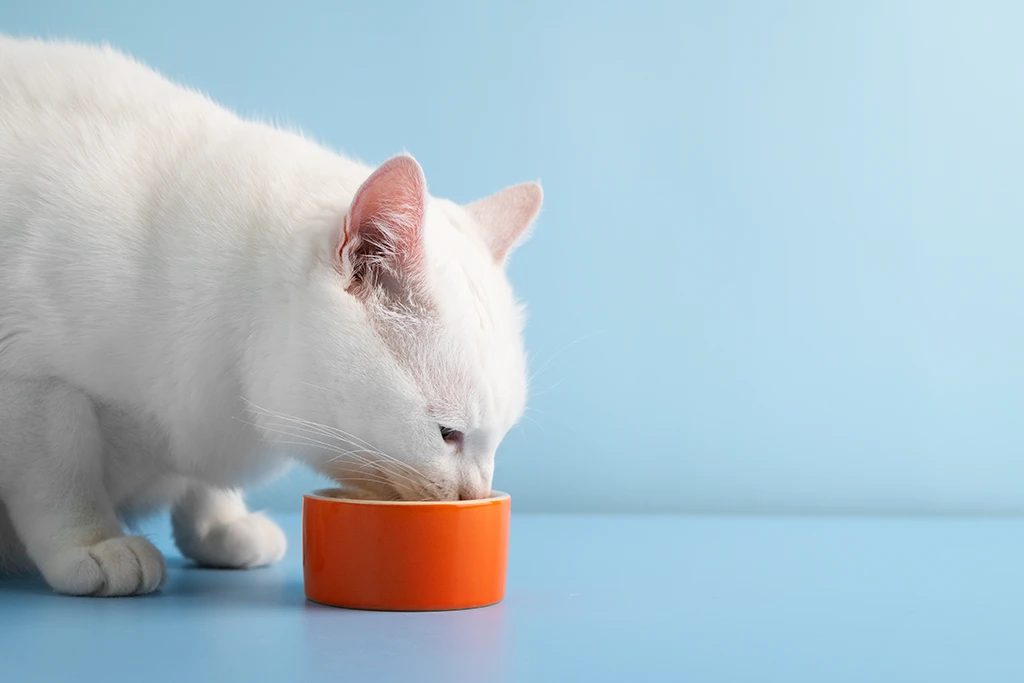

Ever wondered how dogs seem to instinctively know when it’s time for a nap, a snack, or a playful romp in the yard? It’s not just intuition; it’s their endocannabinoid system (ECS) at work. This complex network of receptors and compounds, found in both humans and animals, orchestrates a delicate balance within the body, influencing mood, sleep, appetite, and even pain perception.
Understanding the ECS is like peering behind the curtain of the pet’s well-being. As a veterinarian, I’ve seen firsthand how a balanced ECS leads to happier and healthier lives for pets. In this comprehensive guide, we’ll unravel the science behind the ECS, explore its impact on the pet’s health, and discuss how CBD potentially plays a supporting role.
Table of Contents
ToggleThe ECS is a vast network of receptors and naturally produced compounds found throughout the body. It’s like a master conductor, orchestrating harmony within the pet’s body by regulating various functions. The ECS plays a pivotal role in maintaining balance, also known as homeostasis. Think of it as the pet’s internal thermostat, ensuring its body stays at just the right temperature, even when the world outside is changing.
Just as humans rely on their ECS to stay balanced, so do our pets. This remarkable system influences everything from their mood and appetite to their sleep patterns and immune response. It’s a testament to the interconnectedness of life and a reminder that we share more with our animal companions than we realize.
In simpler terms, the ECS is the pet’s built-in support system, always working behind the scenes to keep things running smoothly. It’s like a skilled tightrope walker, constantly adjusting to maintain equilibrium.
“The endocannabinoid system in animals, which includes dogs and cats, provides homeostatic balance to the nervous and immune systems and is influenced by endogenous and exogenous molecules,” according to the 2019 study by Silver, R. titled “ The Endocannabinoid System of Animals.”
The discovery of the ECS was a groundbreaking moment in science, first observed in animal studies in the early 1990s. Researchers were initially exploring the effects of cannabis on the nervous system, but they stumbled upon something much bigger – a complex system that exists in all mammals, including our beloved cats and dogs.
At the heart of the ECS are two key players: the CB1 and CB2 receptors. These receptors are like tiny docking stations scattered throughout the body, waiting for the right signal to spring into action. CB1 receptors are primarily found in the central nervous system, while CB2 receptors are more abundant in the peripheral nervous system, immune system, and other organs. Together, they form a dynamic duo, influencing a wide range of bodily functions.

Think of CB1 and CB2 receptors as the dynamic duo of the endocannabinoid system, each with its unique superpower in safeguarding the pet’s well-being.
These receptors, like tiny locks scattered throughout the body, are activated by endocannabinoids, the body’s natural keys. This interaction sets off a cascade of events that help regulate various functions, from mood and appetite to pain and immune response.
Understanding the specific roles of CB1 and CB2 receptors unlocks valuable insights into how the ECS contributes to the pet’s overall health and how we support its optimal function.
CB1 receptors are like the emotional centers of the ECS, fine-tuning the pet’s mood, anxiety levels, and even memory. When activated, these receptors orchestrate a sense of calm and relaxation, helping furry friends navigate stressful situations with ease.
They also play a crucial role in appetite regulation and pain perception, ensuring pets maintain a healthy appetite and experience less discomfort. Studies have shown that CB1 receptors are abundant in areas of the brain associated with emotion, memory, and motor control, highlighting their profound impact on the pet’s overall quality of life.
CB2 receptors are the unsung heroes of the immune system, diligently working to modulate inflammation and immune response.
Picture them as vigilant sentries, always on the lookout for signs of trouble. When a pet encounters an injury or illness, these receptors mobilize to restore balance and promote healing. Their role in managing inflammation also makes them a key player in addressing chronic pain and discomfort associated with conditions like arthritis and allergies. Research suggests that CB2 receptors are primarily located in immune cells and tissues, further emphasizing their importance in maintaining a robust immune system.
Imagine a pet as a ship navigating through stormy seas. The ECS is the captain, steering the vessel and ensuring it stays on course. When faced with stressors, temperature changes, or even illness, the ECS steps in to maintain internal stability.
For example, if a dog gets spooked by a loud noise, the ECS triggers a cascade of responses to help them calm down. This includes a release of calming endocannabinoids or a shift in their heart rate and breathing. It’s like having an internal reset button, helping the pet adapt and find their equilibrium.
CBD, or cannabidiol, is a natural compound found in hemp that has captured the attention of pet owners worldwide. Unlike THC, another compound found in cannabis, CBD does not produce a “high.” Instead, it interacts with the ECS in a way that potentially supports balance and well-being.
Research suggests that CBD influences the ECS by interacting with both CB1 and CB2 receptors. This interaction leads to various potential benefits, such as reducing anxiety, managing pain, and promoting a sense of calm. It’s like offering a pet’s ECS a helping hand, allowing it to function more efficiently.
It’s crucial to note that THC is harmful to pets. That’s why it’s essential to choose pet-specific CBD products that have low to no levels of THC. These products are formulated with the pet’s safety in mind, providing the potential benefits of CBD without any unwanted side effects.
When selecting CBD products for pets, it’s important to prioritize quality and safety. Look for reputable brands that provide third-party lab testing results, also known as a Certificate of Analysis (COA).
These results verify the product’s purity, potency, and THC levels. While THC is toxic to pets in high amounts, the allowable limit for hemp-derived products for pets is less than 0.3%. Our products at Paws and Claws CBD contain a minimal amount of THC (0.01%) based on product COA, allowing pets to benefit from the entourage effect, where the various compounds in hemp work synergistically for enhanced effectiveness.
CBD comes in various forms, each tailored to a pet’s needs and preferences.
CBD tinctures are a versatile and popular option for both dogs and cats. They offer flexibility in dosing, allowing owners to tailor the amount of CBD to their pet’s specific needs and size. Tinctures are typically administered directly into the mouth or mixed with food, making them a convenient choice for pets that are picky eaters or need quick relief. Their fast-acting effects, due to rapid absorption into the bloodstream, make them ideal for addressing acute anxiety or discomfort.
When choosing a tincture, opt for a high-quality product specifically formulated for pets. Look for clear dosage instructions based on the pet’s weight and third-party lab testing to ensure purity and potency.
CBD Dog Treats and CBD Cat Treats are a delicious and discreet way to incorporate CBD into the pet’s daily routine. These pre-dosed treats make it easy to ensure pets receive the correct amount of CBD, and they come in a variety of flavors that even the pickiest eaters enjoy.
While edibles take a bit longer to take effect than tinctures, as they’re absorbed through the digestive system, they offer a prolonged and consistent release of CBD. This makes them a good option for ongoing support of overall well-being, managing chronic conditions, or promoting relaxation.
Topical CBD products, like balms and creams, provide localized relief for skin irritations, joint discomfort, and other external issues. These products are applied directly to the affected area, allowing the CBD to interact with the ECS receptors in the skin for targeted support.
Topicals are a great option for pets sensitive to oral CBD or need relief in specific areas. They’re also non-invasive and easy to apply, making them a popular choice for managing discomfort associated with arthritis or allergies.
Remember: Always consult the pet’s attending veterinarian before starting any new supplement, including CBD. They provide personalized guidance on dosage and potential interactions with any existing medications a pet is taking.
By understanding the different CBD product options available, owners make an informed choice to support their pet’s health and well-being. Whether owners choose tinctures, edibles, or topicals, remember that consistency is key. Incorporating CBD into the pet’s daily routine helps them thrive and enjoy a happier, more comfortable life.

Maintaining a healthy ECS has a ripple effect on the pet’s overall well-being. Research suggests that a balanced ECS contributes to:
These are just a few of the potential benefits associated with a well-functioning ECS. As research continues, we’re likely to discover even more ways in which this remarkable system influences our pets’ health.
“CBD is devoid of psychogenic properties and has been used in the treatment of canine and feline diseases, such as degenerative joint diseases, epilepsy, and behavioral disorders,” according to the 2023 study by Skiba, S., Kiraga, Ł., Crowley, K., Miszczuk, E., Jank, M., & Chłopecka, M., titled “Application of Cannabidiol (CBD) in the pharmacotherapy of dogs and cats.”
When starting a pet on CBD, it’s crucial to start with a low dose and gradually increase it as needed. Every pet is unique, so it’s important to consult with the pet’s attending veterinarian for personalized dosing guidance for cats and dogs. They consider the pet’s individual needs, size, health conditions, and any medications they are taking to recommend an appropriate starting dose and titration plan.
While THC is harmful to pets in high amounts, the allowable limit for hemp-derived products for pets is less than 0.3%. Our products contain a minimal amount of THC (0.01%) based on product COA, allowing pets to benefit from the entourage effect, where the various compounds in hemp work synergistically for enhanced effectiveness.
Remember, patience is key. It takes some time to find the optimal CBD dosage for a pet. Observe their behavior closely and communicate any changes or concerns to a veterinarian. Working together ensures pets are receiving the most benefit from CBD while prioritizing their safety and well-being.
Yes, dogs, like all mammals, have an endocannabinoid system that plays a vital role in maintaining balance and health.
Yes, cats also possess cannabinoid receptors, specifically CB1 and CB2, which interact with endocannabinoids and compounds like CBD.
CBD and THC are both compounds found in cannabis, but they have different effects. CBD is non-psychoactive and offers potential therapeutic benefits, while THC is psychoactive and is harmful to pets in high amounts.
“THC is the primary psychoactive compound, while CBD is non-psychotropic, and they have different receptor activity, function, and physiological effects,” according to the 2021 study by Baranović, G., titled “Understanding the conformational, electronic and vibrational properties of Tetrahydrocannabinol (THC) and Cannabidiol (CBD). Pharmacophoric similarities and differences.”
The endocannabinoid system is a remarkable network that plays a crucial role in a pet’s overall health and happiness. By understanding how this system works and how it is supported, owners empower themselves to make informed decisions about their pet’s well-being.
Whether it’s through a balanced diet rich in essential nutrients or the careful use of CBD products, there are many ways to promote a healthy ECS in a pet. By prioritizing their internal balance, owners are not just addressing symptoms – they’re nurturing their health from the inside out.
Remember, every pet is unique, so it’s important to consult the pet’s attending veterinarian before introducing any new supplements or treatments. With their guidance and dedication, owners help their pets achieve optimal health and enjoy a life filled with vitality and joy.
References

Table of Contents
Toggle